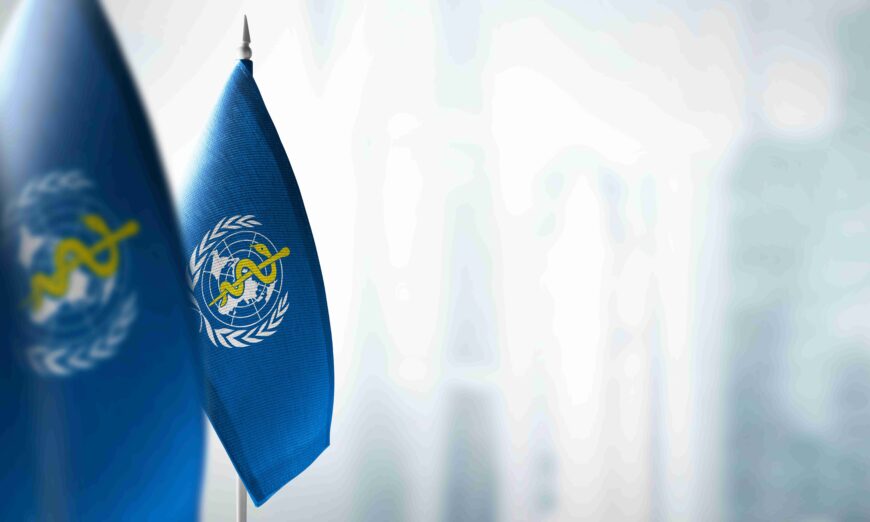from The Epoch Times:
 Since its establishment, the World Health Organization (WHO) has assumed the role of an advisory entity in the international health domain. Since 2005, the WHO established International Health Regulations (IHR) as the main compliance tool to ensure that public health emergencies would be handled swiftly. The COVID pandemic perfectly illustrates how powerful the WHO already is.
Since its establishment, the World Health Organization (WHO) has assumed the role of an advisory entity in the international health domain. Since 2005, the WHO established International Health Regulations (IHR) as the main compliance tool to ensure that public health emergencies would be handled swiftly. The COVID pandemic perfectly illustrates how powerful the WHO already is.
TRUTH LIVES on at https://sgtreport.tv/
However, a new set of amendments (pdf) proposed by state members of the WHO was published at the end of 2022, seeking to enhance the WHO’s power under the guise of the IHR. This, in addition to a newly proposed Intergovernmental Negotiating Body (INB) (pdf) and the addition of a pandemic prevention, preparedness, and response (WHO CA+) clause (pdf) in the INB, raises several red flags on the paradigm shift the WHO is undertaking, from playing the role of an international health advisory body to becoming a global regime acting in the name of health.
From Patient-Doctor Relationship to Powerful Health Conglomerate
Throughout history, people have relied on connections with friends, family, and neighbors to maintain a healthy social life. This is important not only for wellness but also for building the trust upon which the foundation of relationships lies. Just as it is vital in relationships with family and friends, in regard to health, trust is vital in patient-doctor relationships.
Doctors across many countries and diverse regions have a plethora of different methods to treat something as simple as a cold. Some may give you a flu shot, some may prescribe you some minor medication, and some might even tell you to drink hot soup and get lots of rest. There may also be an unfamiliar remedy from Latin America or Southeast Asia that works just as well as something you could pick up in a U.S. pharmacy. This is all to say that well-trained doctors know what they’re doing given the methods available to them.
The one-on-one patient-doctor relationship has traditionally been the tried-and-true way to establish a health system in any society. Even under evidence-based medicine, advice from the U.S. Centers for Disease Control and Prevention (CDC), U.S. Food and Drug Administration (FDA), or other health agencies serves as nonbinding recommendations to doctors that give them the right to make their own decisions based on their knowledge of the patient.
People make their own final health-related decisions; hence, doctors need consent from their patients for treatment or surgeries. The trust people give to their doctors is sacred and demands that doctors practice medicine grounded in ethics and based on genuine medical knowledge, skills, and experience—all things that most doctors still have.
Notwithstanding what has been the norm for generations, the advancement of modern medicine and biotechnology has made the fields of health and medicine huge industries. As a result, the quality of health care has become increasingly dependent on the allocation of resources and distribution of wealth.
Big Pharma, powerful health agencies, and dominant health insurance enterprises are all intertwined, forming a tremendous conglomerate of power. In the name of protecting the people, this manifestation of power has reached an unprecedented level, which was on full display during the pandemic in the form of lockdowns, mandates, the rush of drugs and vaccines, insurance policies determining diagnosis, etc.
WHO: A Global Regime in the Name of Health?
Then we have international organizations like the WHO with a role many people deem too arbitrary to consider an eminent element in their life. It was created within the United Nations and historically played a coordinating role in global health issues and resources, in helping with public health threats like polio, AIDS, and COVID. However, its latest proposed reform raises a serious concern over whether the WHO is turning into a global quasi-regime.
The newest changes the WHO is facing are amendments to the International Health Regulations agreement. The World Health Assembly first adopted the IHR in 1969 to cover six diseases and it has since been revised several times. A fully updated version was implemented in 2005 after China’s SARS outbreak in 2003, after the Chinese Communist Party (CCP) refused to maintain transparency during the outbreak. This 2005 edition of the IHR is now facing stark changes.
The IHR demands WHO nations detect, assess, report, and respond appropriately in regard to public health emergencies that can spread on an international scale. During the COVID-19 pandemic, especially during its onset, China demonstrated an aptitude for disinformation and a lack of transparency toward the international community with regard to sharing data, allowing a probe into the origins of the virus, and issues involving the most recent unprecedented spike of infections and death after the country lifted its zero-COVID restrictions.



